One day, I heard someone say with much conviction: “We must let God be God!”
Perhaps this is what today’s celebration is meant to remind us of: Let God be God…
Accept that God is…
so much greater than we can picture,
so much wiser than we can understand,
so much more powerful than we can realize,
so much more surprising, than we can imagine,
so much beyond all that our human mind can perceive…
Today’s feast of the Holy Trinity is the celebration that:
God is a Father relating in a unique way to his Son, a relationship lived within their common Spirit.
We cannot imagine, understand or realize this – no human being can.
But this statement must be corrected –
one human being has understood: Jesus, he who was truly one of us,
God-made-man, God-become-human.
 While we do not understand God,
While we do not understand God,
because of Jesus, through him, we share in God’s life.
As we are told in the 2nd reading, in the letter that Paul wrote to the Christians of Rome (Romans 5:1-5):
“God’s love has been poured out into our hearts through the Holy Spirit,
who has been given to us.”
This reveals the real meaning of what we believe,
of who God is,
and of what he has made us to be!
Note: Another reflection, on a different theme, is available in French at: https://image-i-nations.com/fete-de-la-sainte-trinite-annee-c-2022/
Source: Image: YouTube

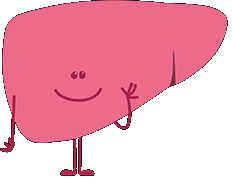
 International NASH Day (IND) is a public education campaign launched in June 2018 to raise visibility and urgency around fatty liver disease and its more advanced form, nonalcoholic steatohepatitis (NASH), which affects more than 115 million people around the world.
International NASH Day (IND) is a public education campaign launched in June 2018 to raise visibility and urgency around fatty liver disease and its more advanced form, nonalcoholic steatohepatitis (NASH), which affects more than 115 million people around the world. « Everyone keeps archives, in an private or professional setting. Through this universal day, we wish to democratize the profession of archivist and improve the perception of the general public regarding the notion of archive »
« Everyone keeps archives, in an private or professional setting. Through this universal day, we wish to democratize the profession of archivist and improve the perception of the general public regarding the notion of archive »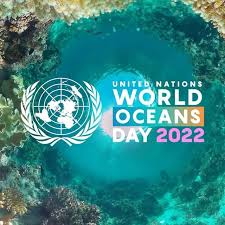 Every year on June 8, World Ocean Day is commemorated to remind people of the importance of the oceans and the major role they play in everyday life. According to the United Nations, the day intends to raise awareness about the impact of human activities on the oceans and to create a united movement for the species of the ocean. Besides, the day is also observed to make raise public awareness of the ocean and its resources in order to promote global ocean and resource sustainability. The day intends to highlight the various resources that mankind derives from the ocean, as well as the various threats that the ocean faces.
Every year on June 8, World Ocean Day is commemorated to remind people of the importance of the oceans and the major role they play in everyday life. According to the United Nations, the day intends to raise awareness about the impact of human activities on the oceans and to create a united movement for the species of the ocean. Besides, the day is also observed to make raise public awareness of the ocean and its resources in order to promote global ocean and resource sustainability. The day intends to highlight the various resources that mankind derives from the ocean, as well as the various threats that the ocean faces. 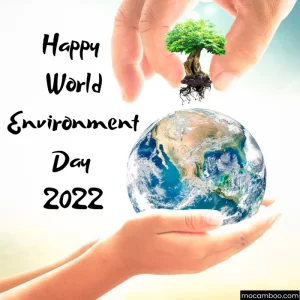
 “The Spirit of God has made his home in you…
“The Spirit of God has made his home in you…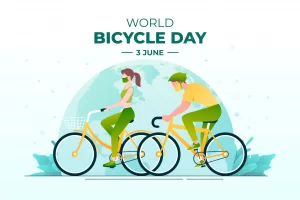
 Every year on June 2nd is the World Day for Responsible Tourism.
Every year on June 2nd is the World Day for Responsible Tourism.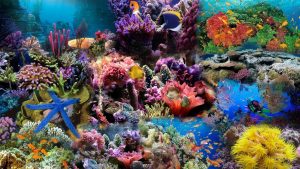 Although coral reefs occupy less than 0.1 percent of the planet’s oceans, they support up to 25 percent of the world’s marine species. They have rightfully earned their nickname, ‘Rainforests of the Sea.’ Coral is not a plant, but part animal and part mineral, a marine invertebrate that secretes calcium carbonate to form a hard skeleton. They grow in colonies, usually in warm, shallow waters, and form vast colonies that we see as reefs, providing the basic platform for marine life to flourish around them. They even provide benefits to land, protecting shorelines from the forces of the ocean.
Although coral reefs occupy less than 0.1 percent of the planet’s oceans, they support up to 25 percent of the world’s marine species. They have rightfully earned their nickname, ‘Rainforests of the Sea.’ Coral is not a plant, but part animal and part mineral, a marine invertebrate that secretes calcium carbonate to form a hard skeleton. They grow in colonies, usually in warm, shallow waters, and form vast colonies that we see as reefs, providing the basic platform for marine life to flourish around them. They even provide benefits to land, protecting shorelines from the forces of the ocean.